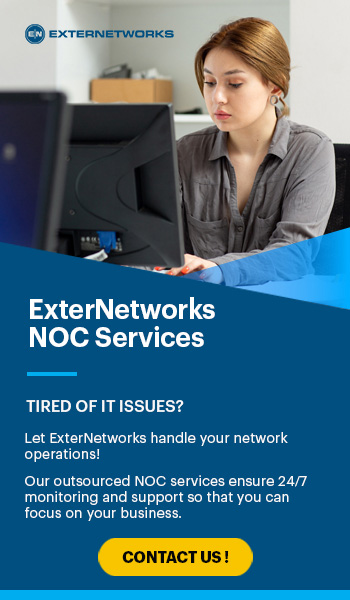 Managed IT Services
Managed IT Services
How can Managed Service Providers Keep your Business Profitable?
What is a Managed Service Provider?
A Managed Service Provider (MSP) is a company that remotely handles IT management for another company. The services of an MSP are often, but not limited to management of company servers, network monitoring, installation and administration of company-specific applications, and mobile app support. The MSP services are provided internally for the company and are not customer-facing technological support.
The specifics of what is managed are detailed in a contract between the hiring company and the MSP. Often, this will also determine the payment model as well which can be set up as cost-per-device, cost-per-user, or a monthly fee that covers a wide range of services.
Why do MSP’s Play a Pivotal Role in Business?
- Preventative Business Model vs. Break Fix
Since their rise in the late 1990s, MSPs have grown to be a pivotal part of an ongoing business growth and development. Not only have they allowed smaller and mid-sized businesses to compete with their peers on an IT level, but MSPs have also changed the service model as a whole.
Historically, the IT industry operated (and profited) solely on a break-fix model. Once something broke, the IT companies were paid once they fixed it. Each project was generally isolated from the next, and no business partnerships were established, nor were there attempts made for preventative support since that would have put the IT companies out of a job.
Once MSPs came onto the scene, the break-fix model slowly began to transition to a preventative model. Instead of waiting for something to break, MSPs began to assess their clients’ current IT positions and would then suggest and implement improvements. They started to provide security as a service and worked to prevent breakages from the get-go.
- Business Partners vs. One-Time IT Techs
With this model change for IT came a truer business partnership. Ongoing support and preventative measures led MSPs to a closer integration with their clients. It engendered trust and changed how businesses viewed their IT as a whole. It also raised the bar for MSPs who were now offering (and expected) to be part of business development and planning, rather than just waiting for something to go wrong. They had to anticipate what could go wrong and get ahead of it for their clients.
- Subscription Model vs. Pay-per-Project
The birth of MSPs also changed the cost of internal IT support. Rather than charge on a project basis, MSPs moved to charging a monthly, ongoing fee for their services. This fee varies based on MSP, client, and services offered and are detailed out in a binding agreement between the MSP and client.
This subscription model of payment, or monthly recurring revenue (MRR) for MSPs, allows for more managed costs that can be easily and efficiently planned for in a company’s budget. This helped impact how companies viewed their IT service providers. The monthly payments and ongoing support helped reinforce the fact that MSPs weren’t just ‘stopping in’ to fix things, they were there as part of the business to keep things operating smoothly and prevent fires, rather than put them out.
How do MSPs Help Companies Stay Profitable?
With the IT service model change and the focus shift to preventative IT, MSPs became a valuable asset to the businesses they partnered with. They did this by helping companies in three fundamental ways:
1. Increased Systems Security / Disaster Recovery
By far, the most impactful way an MSP helps a company is with company data and security. An MSP is more than just a data center that holds company information and waits for technological disaster to strike. Instead, a quality MSP will assess a company’s current IT situation and identify points of improvement. They work to prevent issues from arising, rather than showing up to fix something once it’s broken and they will have plans in place for data recovery if something does go wrong.
In the event that something does break – which can happen to the best of systems – an MSP is right there to fix it. Moreover, unlike a random IT person showing up, the technician from the MSP is already familiar with the system and ideally identifies and resolves the issue remotely. This increase in data safety allows MSPs to help a company stay profitable by ensuring that the core systems are secure. Additionally, it allows for a quicker, focused fix which decreases the overall downtime of a system.
2. Increased Operations Efficiency
Running a company smoothly can often be the key to success. As part of their service offerings, MSPs allow for cloud computing, an off-site hosting, and monitoring of company servers. This helps a company’s overall operations team by:
- Providing 24-hour monitoring
- Ensuring regular data updates and software installations
- Reducing system downtime
- Decreasing operational costs
The operations team no longer has to spend time worrying about the technological aspect of the business when an MSP is involved. Instead, they can focus on increasing business efficiency and ultimately profit. This is an essential benefit of working with an MSP because a concentrated operations team helps to benefit everyone!
3. Increased Financial Stability
Lastly, MSPs can help improve the financial stability of a company. Because they are hired under a subscription model, it regulates most IT costs and removes the sudden spikes in cost caused by fire drills. Taking it a step further, because much of an MSP’s focus is on preventative work, there are fewer issues to fix in general, and the ones that arise are not as damaging. This also leads to a decrease in costs associated with IT.
Conclusion
Since their inception nearly three decades ago, managed service providers have been revitalizing the technology industry for small to mid-sized businesses. IT became something that a company could own as its own while trusting it to an MSP. There is a myriad of benefits, ranging from minor to major, that come with using an MSP and a partnership that can propel a business to the next level.
Related on ExterNetworks Right Now!













